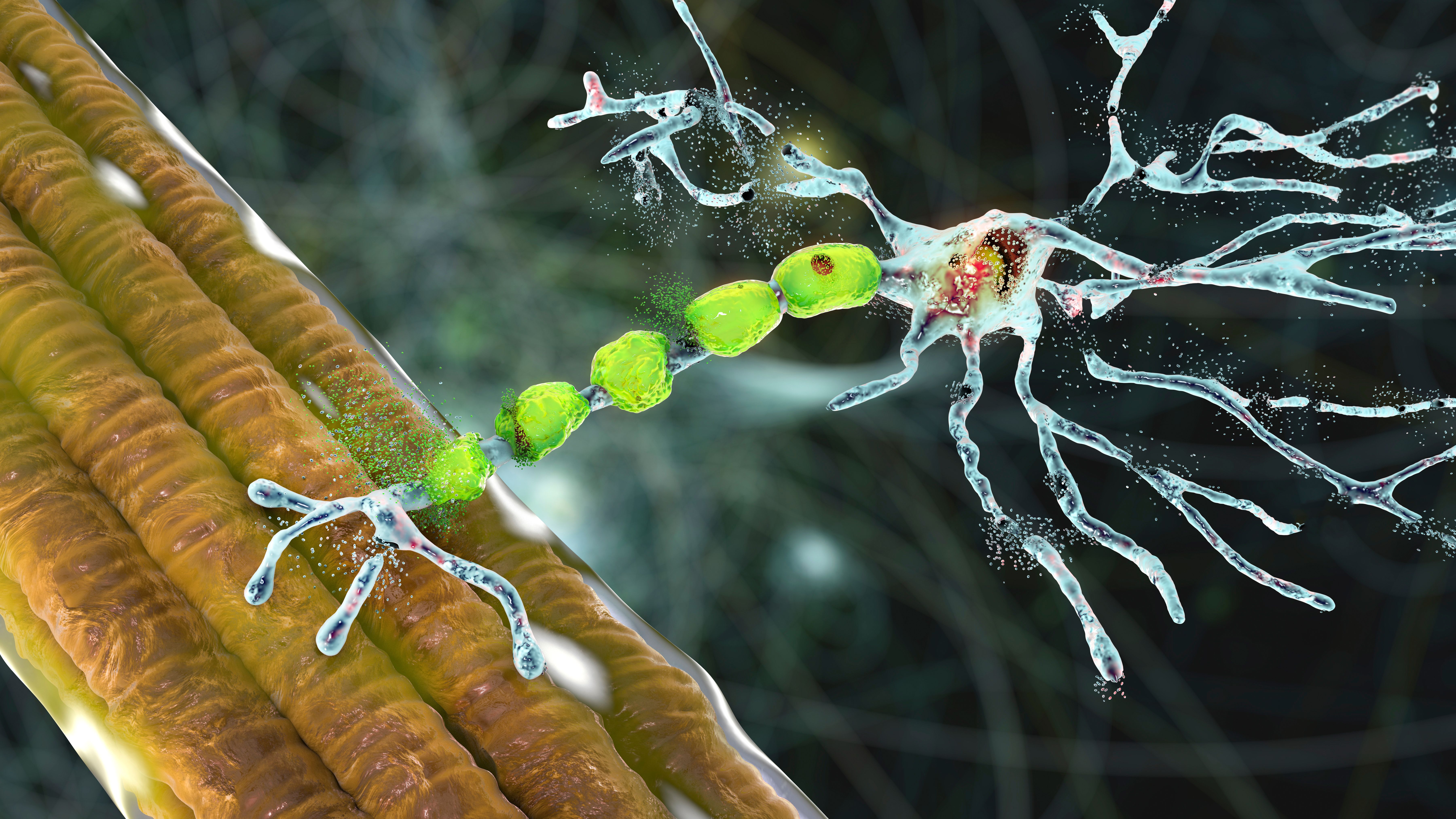- Center on Health Equity & Access
- Clinical
- Health Care Cost
- Health Care Delivery
- Insurance
- Policy
- Technology
- Value-Based Care
Choroid Plexus Indicated in MS Pathology
A longitudinal, observational study found that the choroid plexus, a network of blood vessels in each ventricle of the brain, plays a potential role in the neurodegenerative and chronic inflammatory process experienced by patients with relapsing remitting multiple sclerosis (MS).
Patients with relapsing/remitting multiple sclerosis (RRMS) experience progressive choroid plexus (CP) enlargement, which is also associated with neurodegeneration of periventricular grey and white matter and chronic lesion expansion in this patient population, according to a recent study published in Multiple Sclerosis.
MS is an inflammatory and neurodegenerative disease that has a severe impact on the central nervous system (CNS). The presence, growth, and endurance of inflammatory demyelinating lesions lead to a progressive form of MS and, as the authors of the present study indicate, have been linked to further neurodegeneration, disability, and atrophy of the brain.
Neurodegeneration Concept | Image credit: Dr_Microbe - stock.adobe.com

The CP bears responsibility in the regulation of immune cells entering the CNS, as well as the creation of cerebrospinal fluid (CSF). Prior research has implicated CP in MS pathophysiology, suggesting its involvement in the neuroinflammatory processes of MS.
The authors point to previous studies that drew conclusions about the size of the CP and chronic lesion expansion, as well as incidences of acute inflammation. These results indicate the potential relationship between CNS inflammatory processes and the CP, hinting that the CP could play a role in MS progression. Considering these associations, the researchers designed a study to assess longitudinal changes in the CP in patients with RRMS to determine whether they can be linked to neurodegenerative and inflammatory outcomes.
Fifty-seven patients were eligible for analysis. During the study period, 3 patients did not undergo treatment, 19 changed their treatment regimen, 8 received lower-efficacy treatment (interferon, teriflunomide, glatiramer acetate, dimethylfumarate), and 27 had higher-efficacy treatment (natalizumab, fingolimod, alemtuzumab).
At baseline, the mean (SD) normalized CP (CPn) volume was 2616 (846) mm3, which increased significantly over the course of the study, with an average annual CPn volume enlargement of 1.4% (1.2%) (P < .00001). Additionally, CPn volume enlargement at patient follow-up was significantly correlated with the patients’ baseline measurements (r = 0.50; P < .001). The authors noted that there were no significant associations found in this regard related to age, sex, duration of disease, baseline ventricle volume, or results from the Expanded Disability Status Scale.
However, they witnessed significant affects in central brain atrophy, which was measured by notable increases in ventricular volume (–2.68% per year; P < .001). Furthermore, they noted that a patient’s duration of disease had a significant impact on total brain atrophy (P = .001), grey and white matter atrophy (P < .01 and .001, respectively), and ventricular volume (P = .006). Additionally, age significantly affected grey matter atrophy (P = .002), cortical change (P = .001), and total brain atrophy (P = .037). T2 lesion loads also significantly increased throughout the study period (4621 [4952] and 6076 [5981] mm3 at baseline and last follow-up, respectively; P < .0001), as did the expansion of chronic lesions (346 [449] mm3 average per year; P < .001).
Annual CPn volume increases significantly correlated with annual rates of total brain atrophy (r = –0.55; P < .001), white matter atrophy (r = –0.61; P < .001), and deep grey matter atrophy (r = –0.6; P < .001). The annual CPn expansion was further associated with the observed volume of chronic lesion expansion (r = 0.46; P < .001) and the level of tissue rarefication within the chronic lesions (r = 0.49; P < .001).
“It has become clear that the CP not only actively participates in acute inflammatory processes, including antigen presentation and recruitment of peripheral inflammatory cells, but remains chronically inflamed, even in long-standing MS,” the authors write. They add that this is “contributing, therefore, to a proinflammatory state of the CSF and inducing a persistent neuroinflammatory environment in periventricular brain tissue.”
As research grows on this subject, the authors further note that they were unable to effects of medication or medication changes on these outcomes. Further studies should consider these affects to a higher degree.
Reference
Klistorner S, Barnett MH, Wang C, Parratt J, Yiannikas C, Klistorner A. Longitudinal enlargement of choroid plexus is associated with chronic lesion expansion and neurodegeneration in RRMS patients. Mult Scler. Published online February 6, 2024. doi:10.1177/13524585241228423
